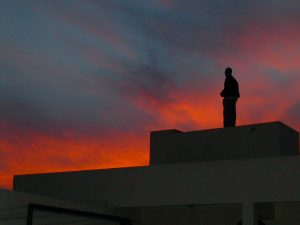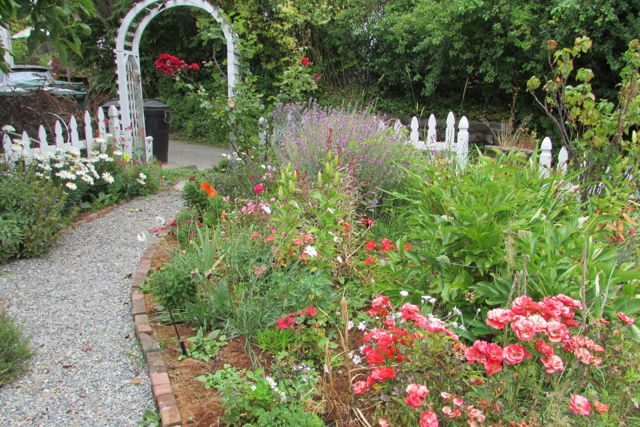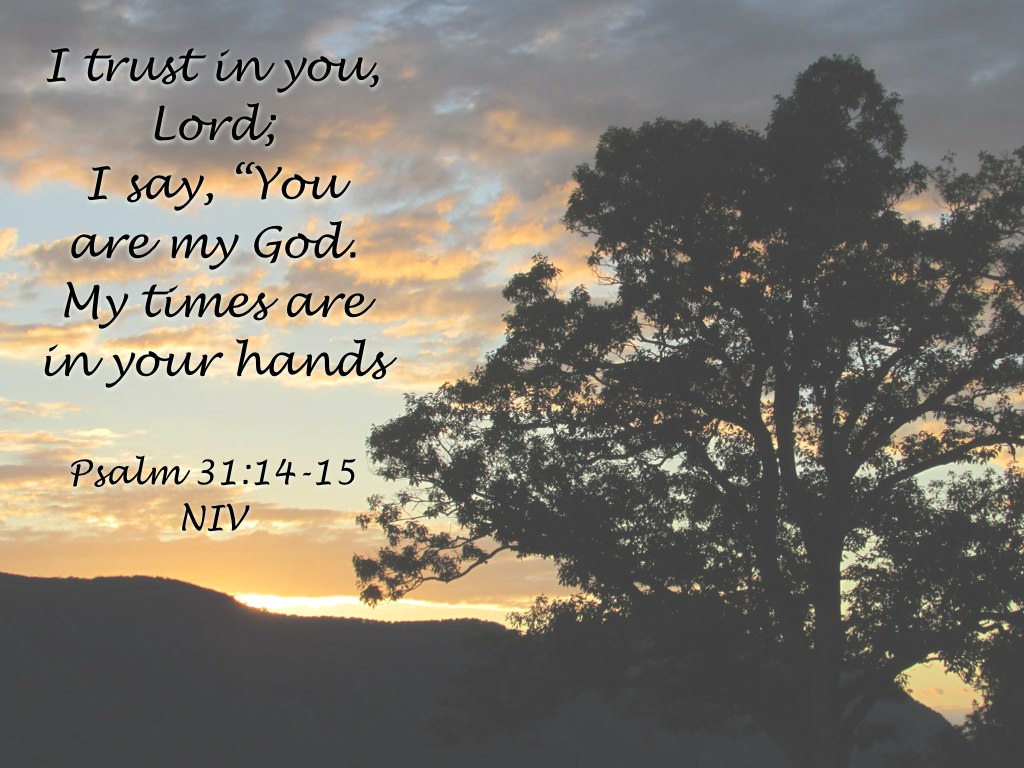Today’s post is another in the series Hospitality: Opening Doorways to the Kingdom.
Touch your own loneliness
And there you may be
Able to accommodate another’s loneliness
So it’s hope they see.
“Ministers who have come to terms with their own loneliness and are at home in their own houses are hosts who offer hospitality to their guests.”
~ Henri J.M. Nouwen (1932-1996)
LONELINESS is a great and untapped ally, if only we can be honest in our lack. The greatest thing about loneliness is it’s something we all suffer. It therefore connects us intrinsically with each other and our own persons. As soon as we connect these ideals of lack, we determine that the upper limits of humanity are reached in simply being who we are – creatures of heaven subsisting, but for a time, here, on planet Earth.
After Earth all will make sense. It will make sense again as it has always made sense.
In our loneliness – in all its myriad forms – we will suffer as we will. But if we take that suffering as assumed, we have something for all other persons to cling to, if or when they need it. This is nothing about dependence – the other person on us or we on them. No, it’s about a safe haven where no pretence survives and connection flows between two beings made in the image of God.
Wherever there is truth, there is safety. That’s because in the truth is grace. Because loneliness is an existential truth – that all who exist suffer loneliness – it is an abiding fact of life that offers goodness, not horror; hope, not despair.
In itself, loneliness is the answer, for loneliness is the invitation to entry upon the Divine. God meets us there. There we will recognize God.
The best ministers offer not their skills, their knowledge, their gifting, and their experience, but, according to Nouwen, they offer their very selves. They are vessels of comfort in their own beings. They afford those who call into their home, lodging, free of board and keep, for space is determined on the eternal need. No material thing comes close.
Being of this modus operandi, there is no reason for self-doubt on either side – the minister or the ministered-to. There is every assurance afforded by simple authenticity – when two can be one together, invoking the eternal space where God is mysteriously present. Two, in this way, transcend loneliness, for they have overcome, in the moment, every worldly need.
***
Loneliness is a true ally if we can accommodate a new truth: loneliness connects us all. Tap into loneliness with another human being and see what God does!
© 2014 S. J. Wickham.
Today’s post is written by Steve Wickham who is a regular contributor to this blog from Perth Australia. He is a Baptist Pastor who holds Degrees in Science, Divinity, and Counselling. Steve writes at: http://epitemnein-epitomic.blogspot.com.au/ and http://tribework.blogspot.com.au/
Article Source: http://EzineArticles.com/8227631
I wrote the following prayer this morning during my devotional time and posted it on the Light for the Journey Facebook page. My mind keeps returning not just to the prayer but to the posture I suggest we adopt for the prayer. I realize more and more how much we all need not just prayers to pray, but actions that go with those prayers – actions that call us focus inwardly to meditate, rest, and listen, or actions that call us to move out and get involved in God’s world.
This prayer also arose out of a time of walking round my garden yesterday after it had rained, the first time for about six weeks. The raindrops glistened on flowers and leaves, the air was fresh and fragrant, and everything seemed to have grown exponentially overnight. The sense of God’s presence was electrifying, drawing me into the wonder of God’s abiding love.
So, before you read this morning’s prayer take a moment to calm your spirit. Sit quietly in a comfortable chair, or go out and walk around your garden. Sit and imagine something or someone who calms and quietens your soul. Sit with the palms of your hand facing upwards, open to God. Take a few deep breaths in and out until you feel relaxed then say the prayer:
Let the deep peace of God
Penetrate your heart.
Let it flood your soul,
And overflow your spirit.
Let the deep peace of God
Fill you with hope and trust.
Let it bring you rest,
And surround you with tranquility.
Let the deep peace of God
Be ever present to you.
Let it guide you forward,
Into the embrace of God’s love.
When you finish sit in quiet for a few minutes more. Allow the peace and the love of God to penetrate deep within you. Perhaps you would like to write the prayer out and take it with you so that you can pause at intervals throughout the day to pray it again and allow it to resonate deep within your being.
Yesterday I wrote and posted this breath prayer on the Light for the Journey Facebook page. Its popularity makes me realize that I am not the only one who appreciates these prayers. I wrote it after wandering around my garden following the first rain we have had for about six weeks. The wonderful fragrance that rain brought to the air with the hint of ozone and free of pollutants was amazing.
Lord Jesus Christ,
I breathe in the wonder of your love,
And say thank you.
I breathe in the fragrance of your life,
And say thank you.
I breathe in the joy of your presence,
And say thank you.
Thank you for love and life and presence.
Thank you for abundance and generosity and faithfulness.
Thank you for blessings that overflow.
I breathe in and am filled with the glory that is You.
I have talked a lot about breathing prayers in the past and use them frequently. This excerpt from Return to Our Senses gives a good summary of some of my thoughts. And here Lynne Baab talks about her encounters with breath prayers.
I love Richard Rohr’s understanding that the Jewish name for God – Yahweh – was not spoken, but breathed. Its correct pronunciation is an attempt to imitate the sound of inhalation and exhalation. We do that every moment: our first and last word as we enter and leave the world…. The one thing we do every moment of our lives is therefore to speak the name of God. (Richard Rohr: The Naked Now) Listen to him talk about this here.
Prayers like this make me realize my need to breathe in and out deeply at regular times during the day – filling all of my lungs with the essence of God.
Here is another beautiful breathing prayer by AB Simpson
And some of my own prayers:
Here is the first breathing prayer I wrote. It is still a favourite for me and one that I frequently use in seminars.
And another entitled in Faith and Confidence I breathe freely.
It is easy for us to take breathing for granted, unless we suffer from allergies, asthma or panic attacks. But that too can help remind us that breath is a gift from God. As I explain in my post Its Allergy Season but Don’t Hold Your Breath too Long, the breath of God in the bible gives us life, fills us with the spirit and enlivens the scriptures.
More recently I have learned that as we grow older we forget how to breathe properly. Intentionally pausing throughout the day to take deep breaths in and out is highly recommended by many medical experts. Hmm, maybe combining that with moments of prayer would be a good idea. I have also learned that there are many aspects of modern culture that restrict or inhibit our breathing – not just air pollution but fashion, especially women’s fashion often inhibits our breathing. High heeled shoes are a particular deterrent to poor breathing. And not surprisingly sitting hunched over a desk all day is also bad for our breathing.
So take some time to breathe deeply today. Perhaps you would like to use one of the prayers mentioned above, or try this Celtic style prayer which I will be using in our upcoming Celtic retreat Brigit and the Hospitality of God.
Breathe on us God of life,
Breathe in us Christ of love,
Breathe through us Spirit of truth.
Let justice reign,
Let compassion flow,
Let love reign over all.
Breathe on us God who cares,
Breathe in us Christ who reconciles,
Breathe through us Sprit who transforms.
Fill us with kingdom seeds,
Send us out in peace,
Let love reign over all.

Brian Sellers Petersen at Atlantic Street Family Centre for Food and Faith Steering Committee gathering
Tom and I have just taken a walk around our neighbourhood. It is wonderful to see vegetable gardens springing up all over, and to have a chance to say hi to the early morning dog walkers. Last Friday I got together with other members of the steering committee for Seattle Tilth’s Food and Faith Initiative to discuss ways to further encourage faith communities to reach out into their neighbourhoods.
It seems appropriate therefore that I have also been rereading the chapters The New Parish on Presencing and Rooting. To me these are core concepts of what it means to become the New Parish, but then again I am all into spiritual formation so that is probably not surprising. The ideas also flow well from my post yesterday, because imagining what the kingdom of God could look like in our communities and working to bring about kingdom change is at the heart of the type of spirituality we all need.
I continue to reflect on the type of spirituality these chapters highlight and what we can learn about the practices we all need to develop for the future. I love the concepts that Dwight, Paul and Tim explore here. Their emphasis on a spirituality that is community focused not individually based is wonderful. Their challenge to root this in a certain place together not only with our own faith community but with those of other faith persuasions is compelling and to a certain extent convicting.
1. Drawing people together for mutual times of listening, discerning and experimenting. As I am sure you are all very well aware this is the practice that is at the core of MSA. Our regular discernment meetings have profoundly shaped our organization over the last few years and will continue to define our ministry for the future.
2. Modifying lectio divina to include not only listening to scripture but also to our own story and the story of our neighbourhood. Again a very important practice that gets us our into the neighbourhood, looking listening, engaging people we meet and discerning what God is saying through these interactions. This is both an active and a reflective process and my one concern is that we do the action without taking adequate time to really listen to what God wants to say through the process. When we do listen, and again preferably with others, this is a powerful spiritual practice that shapes us, our community and our neighbourhood.
However I would add also listening to the story of our world. Our local communities to not function in isolation from other communities in this country and around the world. The pain and horror of war, poverty and disease are all part of the context we need to consider. Our spiritual practices of listening and discerning should open us up to the broken heart of God who aches for the restoration of our world .
3. Taking time for personal and community renewal. I know from my own experience that it is easy, even when involved in regular listening and discernment to get too busy and too focused on the work that is still out there to be done. Working towards the completion of one area of transformation before we start on another is not easy. Pausing to take time to reflect on the good things that have been accomplished and to renew and restore your own person – body, soul and spirit – is not easy in our society.
Affirmation and gratitude should be at the heart of our spiritual life – affirmation of others by us, but also space and time for others and for God to affirm us. Taking time for this affirmative process makes us less driven and less inclined to commit ourselves to more than we are capable of or called to by God.
So as you think about this today ask yourself these questions:
1. When was the last time your walked around the neighbourhood thanking God for the good things God is accomplishing that you have the privilege to be a part of?
2. When was the last time you paused to drink in the presence of God and heard the divine voice say Well done good and faithful servant.
And if you can’t remember take some time to do this today.
This morning I am sitting at my desk absorbed by the beautiful collage I was sent by Joyce Withrow who just finished reading my book Return to Our Senses. It incorporates the words:
Sometimes the heart sees what is invisible to the sight.
I am also sitting here thinking of the words I heard preached at church yesterday by Morgan Schmidt:
God is always about restoration and is working to make all things new. We just need to to wake up to it.
Morgan asked us to imagine with God what a restoration could look like in a world in which the problems are too big for us to cope with. And as I listened to the news this morning the problems were definitely too big to cope with – Israel invading Gaza, wildfires devastating homes and searing hundreds of thousands of acres in Eastern Washington, humanitarian crisis on the U.S. Mexican border, escalating conflict in the Ukraine, ongoing conflict in Syria, and Afghanistan. The list goes on and on and often we cannot cope with so much bad news.
Thy kingdom come we say each time we recite the Lord’s prayer but I wonder if we really believe it. We know we cannot fix the brokenness and sometimes we forget our dreams of what a restored world could look like. Sometimes we forget that God is building a kingdom of righteousness, and abundance, freedom and wholeness for all. A kingdom in which love is the language and peace and joy are everywhere.
What if instead of focusing on the suffering in our world we imagined with God what restoration could look like? What if we groaned with all of creation because of the brokenness of our world and shared the heartbreak of our God who longs to see all things restored and made whole?
And then what if we took note of the ways in which God’s kingdom is already breaking into ours,believing and affirming that any time good, love and beauty are expressed we encounter something of God. What if we allowed these encounters to attune us to imagine the kingdom in its fullness and then went out to bring more goodness and love and beauty into the world.
Whenever we share communion we say the words Do this for the remembrance of me. I think Jesus knew how easily we would let go of his dream of a renewed and restored world. He knew how quickly we would become disheartened when things did not change as we wanted them too. But at the communion table we are encouraged to train ourselves to live as Jesus lived and to imagine and live into the kingdom day by day. We are challenged to commit ourselves to God’s dream of a world made knew and to do the little things we can to see that come into being.
This morning’s post is written by Leroy Barber the global executive director of Word Made Flesh. I am reposting this from his recent newsletter firstly because the sentiments in the letter so touched my heart. The question they raised in my mind is How can we support and be hospitable to people of colour wanting to work in missions? I am also posting this because I will be speaking at the Word Made Flesh staff conference in a couple of weeks and am excited about meeting people I have corresponded with but never met who are so dedicated to helping the world’s poor. It is fellowship with people like these that keeps me sensitive to those who are disadvantaged in our world. They encourage me to grapple with hard questions that keep me on the path that God intends me to follow.
I think I am a bit angry today. I know I should be used to the story, but it always hits me like a ton of bricks when I am faced with the reality. We have a great group of interns for the summer. They are committed young people who are beginning a journey and are looking to commit their lives to living out justice. They come to learn, offer their gifts, and explore the possibilities of doing ministry like this for the rest of their lives. I love the process. It’s not always easy or neat but incredible through all of it.
We have a diverse crew this summer, something we desire, and work hard for as an expression of our faith. We want everyone to be able to serve. The difficulty lies in the fact that we are locked into a system of support raising, and inevitably it rears it’s ugly head as it’s already doing this summer. The persons of color, though highly qualified people, don’t have the networks to support even a summer. This is a reminder of the legacy of injustice of the brokenness of our systems that favor privilege. Mind you, God continues calling young people from all backgrounds. This inherent injustice merely points out the brokenness of our system and how far removed it is from God’s heart. The God of Justice, keeps calling all people and our broken system keeps hurting them.
This summer reminds me of the hard places Donna and I have found ourselves while trying to raise support, raise a family, and answer the call in our lives. We chose to keep at it, but the tax we paid as people of color in missions was great. Extra jobs on the side, sleepless nights, and at times, months without pay. It is my desire to change this for young people of color starting out on this journey.
I want to believe that 25 years later we can do better. Diversity is, of course, important because many of the communities “served” are communities of color and people need to see people like them in roles of leadership and service. Not to mention that by excluding people of color, we are missing out on a greater understanding of who God is. Since we are all made in the image of God, the more diversity we have, the more of God we see.
This month marks one year for me at Word Made Flesh. Throughout this year, I have had the opportunity to visit people around the world and encounter some great local leaders. Leaders that are doing excellent work in their communities but for whom personal support raising is not an option. There are usually no middle class uncles, aunties, churches, or parents to send monthly gifts. Yet the work they do each day as social workers, teachers, and executive directors is vital to the life of the community.
This month I ask that you send a gift to support our interns of color. That you recognize the leadership they bring and the sacrifices they make. I challenge you to give generously. Your gifts will not only help our interns, but will also support local and leaders of color around the world.
Leroy Barber is an ordained Christian minister who has dedicated more than 25 years to eradicating poverty, confronting homelessness, restoring local neighborhoods, healing racism, and living what Dr. King called “the beloved community.” He is currently the Global Executive Director of Word Made Flesh, an international organization that works among the most vulnerable of the world’s poor. He serves on the boards of Mission Year, The Simple Way, The Evangelical Environmental Network (EEN), and the Christian CommunityDevelopment Association (CCDA). He is the author of three books: New Neighbor: An Invitation to Join Beloved Community (Mission Year, 2008); Everyday Missions: How Ordinary People Can Change the World (Intervarsity Press, 2012); Red, Brown, Yellow, Black and White: Who’s More Precious In God’s Sight? with Velma Maia Thomas (FaithWords/Hachette Book Group, 2014). Leroy has been married to Donna for the past 29 years and together they have five children.
This morning John Birch of faithandworship.com posted this prayer on the Light for the Journey Facebook page. It is such an apt prayer for this time that I thought I would repost it here.
Thinking particularly of that tragedy in Ukraine, but encompassing so many others…
We pray for all whose lives
have been touched by tragedy,
whether by accident
or a deliberate act.
For those who mourn,
immerse them in your love
and lead them through this darkness
into your arms, and light.
For those who comfort,
be in both the words they use
and all that’s left unspoken;
fill each heart with love.
We ask this through Jesus Christ,
whose own suffering brought us life,
here and for eternity. Amen
©John Birch, http://faithandworship.com
Having just read this prayer, I turned to my scripture readings for the day which included Psalm 31. This psalm and particularly verses 14 & 15 But I trust in you, Lord; I say, “You are my God. My times are in your hands; and the final verse Be strong and take heart, all you who hope in the Lord have been my scriptures I return to throughout my life. Part of the scripture is on the cover of an old bible.
Reflecting on that gave birth to this prayer:
Lord our trust is in you alone.
In a world with much despair and trouble,
where people are famished for hope we turn to you.
Make us strong to comfort those who are in despair.
Give us hope to encourage and strengthen those in trouble.
Send your unfailing love to surround those who are in harms way.
Comfort the comforters,
Mourn with the mourners,
Protect the innocent,
Draw us all into the shelter of your wings.
©Christine Sine
As an Amazon Associate, I receive a small amount for purchases made through appropriate links.
Thank you for supporting Godspace in this way.
When referencing or quoting Godspace Light, please be sure to include the Author (Christine Sine unless otherwise noted), the Title of the article or resource, the Source link where appropriate, and ©Godspacelight.com. Thank you!










